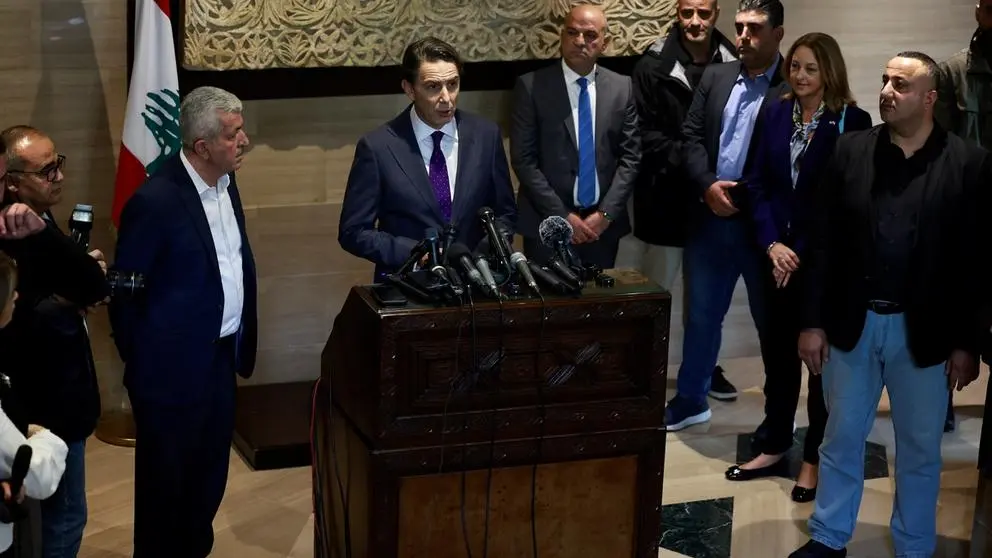Light at the end of the tunnel at last-after months of bitter fighting, finally, there’s hope for peace between Israel and Hezbollah, so says America’s point man in the region.
Amos Hochstein, the White House’s seasoned diplomat, couldn’t hide his optimism when he stood before reporters in Beirut on Tuesday. Fresh from talks with Lebanon’s Parliamentary Speaker Nabih Berri, he broke the news everyone’s been waiting to hear: “We have a real opportunity to bring this conflict to an end.”
The timing couldn’t be more critical. Just yesterday, both the Lebanese government and Hezbollah nodded to Washington’s peace proposal – though they’ve got some thoughts about what’s in it. “It’s now within our grasp,” Hochstein told the packed press conference, his voice carrying a note of urgency. “The window is now… I hope the coming days yield a resolute decision.”
Behind the scenes, things are looking up. Berri, speaking to our colleagues at Asharq Al-Awsat, described the situation as “good in principle,” though he noted some technical details still need ironing out. He’s counting on Hochstein to smooth these wrinkles before heading to Israel, with Uncle Sam acting as the referee making sure Israel keeps its end of the bargain.
Over in Israel, Energy Minister Eli Cohen played it cool at a conference, confirming talks were happening but standing firm: Israel won’t budge unless all its demands are met, especially pushing Hezbollah back from the border.
But while diplomats trade words, bombs keep falling. Israel’s been hammering Hezbollah’s turf in south Beirut, with three strikes hitting the capital in just the last three days. This follows their September offensive that shocked everyone – massive airstrikes across Lebanon, boots on the ground in the south, and several Hezbollah commanders, including Hassan Nasrallah, killed in action.
The numbers tell a heartbreaking story. Lebanon’s health ministry reports 3,544 lives lost and 15,036 wounded since October, with Monday alone claiming 28 souls. Just today, two people died when Israeli forces struck Beirut’s Chiyah district. Meanwhile, Hezbollah keeps firing back – 35 projectiles and two drones headed Israel’s way on Tuesday, though many were intercepted.
The path to peace isn’t simple. Israel wants “freedom of action” – basically a free hand if Hezbollah acts up again. Lebanon’s not having it. Everyone agrees any deal needs to follow the 2006 playbook – UN Resolution 1701, which says Hezbollah’s fighters and weapons need to move north of the Litani River, about 20 miles from Israeli territory.
As Berri’s right-hand man, Ali Hassan Khalil, told Reuters on Monday, Lebanon’s response to the US proposal shows they’re serious about making this work. “We’re sticking to Resolution 1701, down to the letter,” he said.
For thousands of Israeli families evacuated from the north, and countless Lebanese caught in the crossfire, peace can’t come soon enough. The question now is: will both sides grab this chance for peace, or let it slip away?








